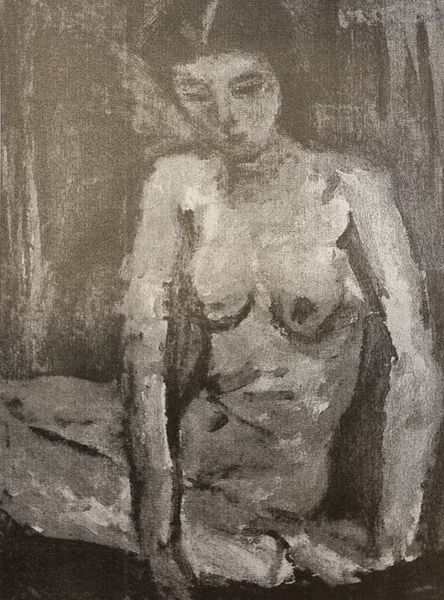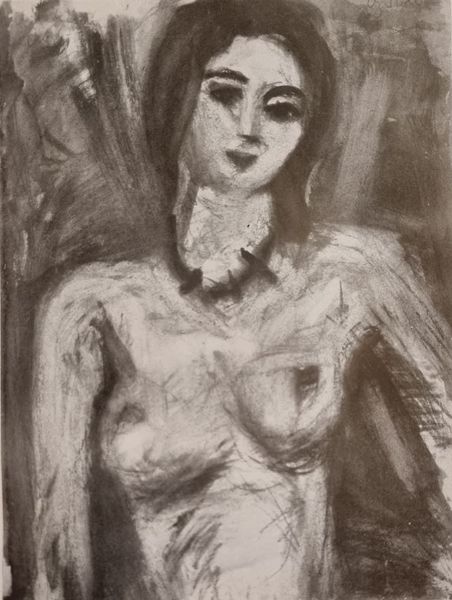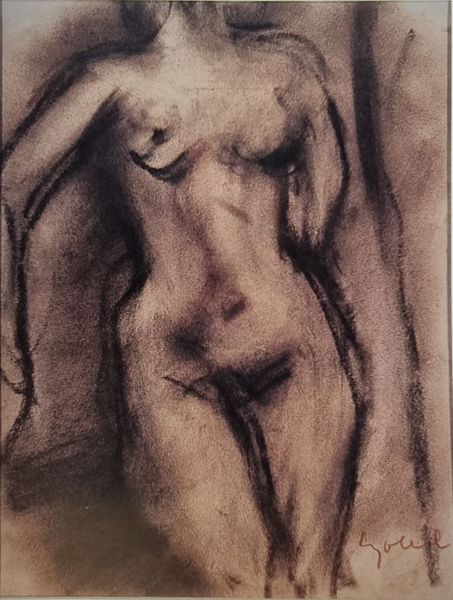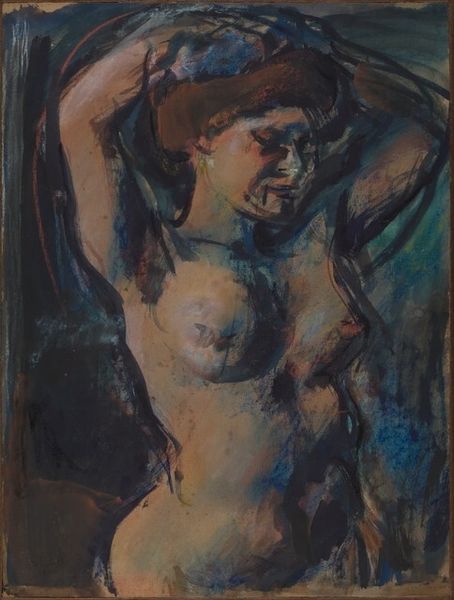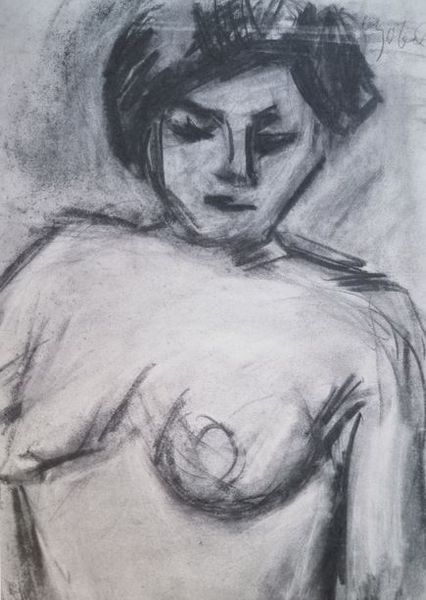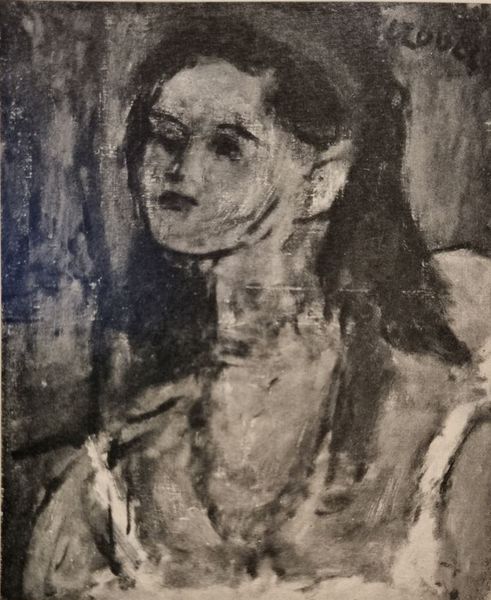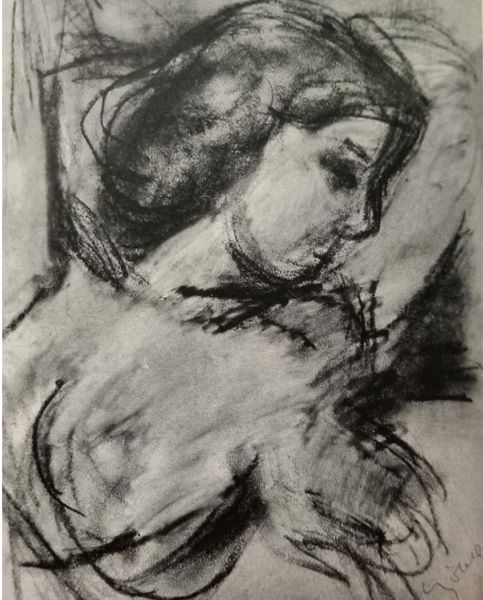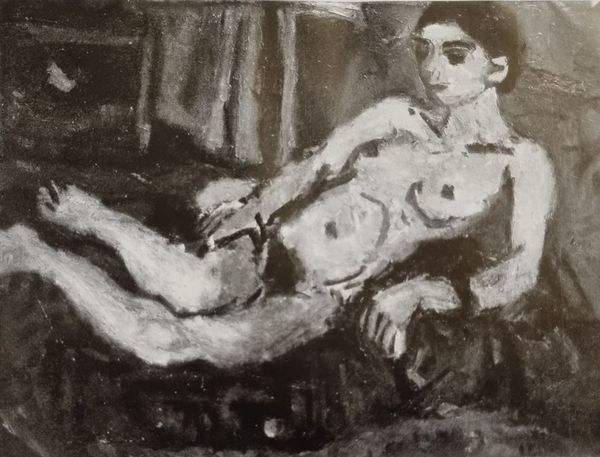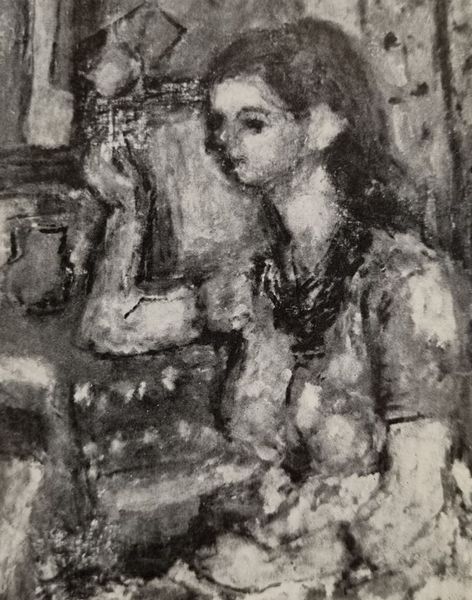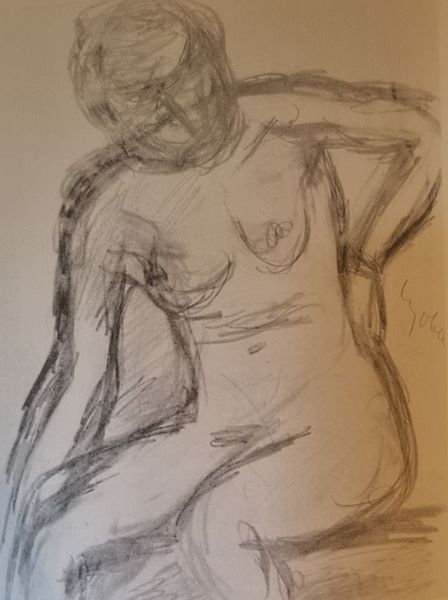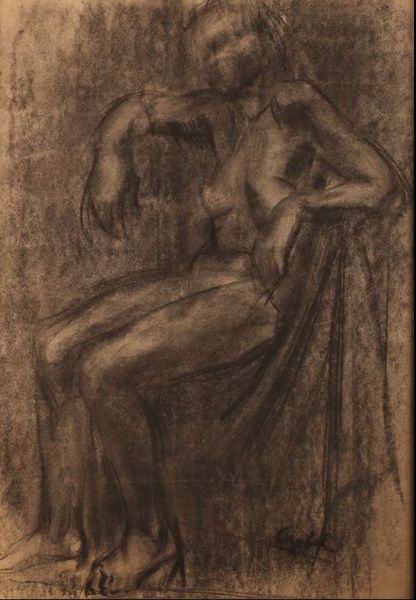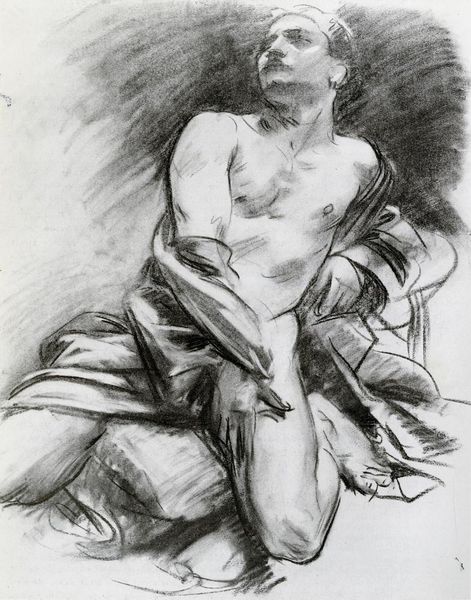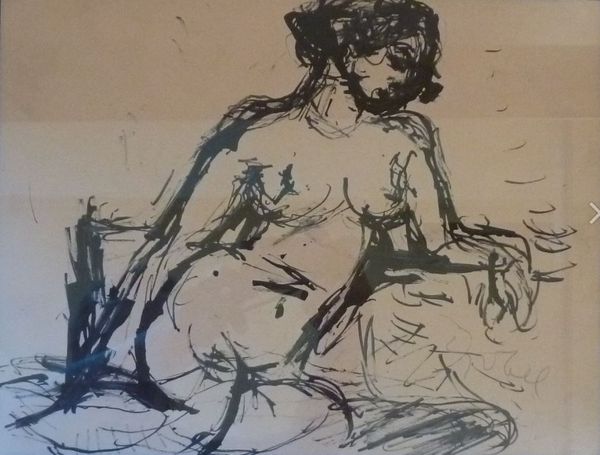
drawing, charcoal
#
portrait
#
drawing
#
charcoal drawing
#
expressionism
#
charcoal
#
charcoal
#
nude
Copyright: Bela Czobel,Fair Use
Editor: Here we have Béla Czóbel's "Modell," a charcoal drawing from 1928. The subject's pose is really striking; there's this tension in the figure, a kind of raw emotion that I find very compelling. What can you tell me about the way this piece might have been received back then? Curator: It's interesting you pick up on the emotion, because Expressionism, which influenced Czóbel, often aimed for that visceral reaction. Considering this was made in 1928, we should remember the context. The aftermath of World War I had a profound impact on artists. There was a widespread disillusionment with traditional values and artistic forms. Nudes, once symbols of classical ideals, started being used to portray psychological states, often with an unvarnished honesty. Editor: So, showing the body in this way was almost a challenge to societal norms? Curator: Precisely! And the use of charcoal adds another layer. It’s a very direct, immediate medium. Think about how academic drawing academies relied upon charcoal in order to instill their students with ideas of perfection, this piece shows that academic tradition subverted. Czóbel is using this classical material to depict something raw, almost unfinished, turning that institutional process on its head. How does that affect your reading of the figure's expression now? Editor: It makes me see the vulnerability even more. Knowing it was made during that time adds so much depth. It’s no longer just a portrait, it's a reflection of the post-war mindset. Curator: Absolutely. And think about who had access to art then, how these images were displayed and discussed. "Modell" isn't simply about a nude body, it's about the public role of art and how it reflects the emotional and social upheavals of the time. Editor: That completely reshapes how I view this piece! Thanks for pointing that out, the cultural context really changes the entire meaning.
Comments
No comments
Be the first to comment and join the conversation on the ultimate creative platform.
